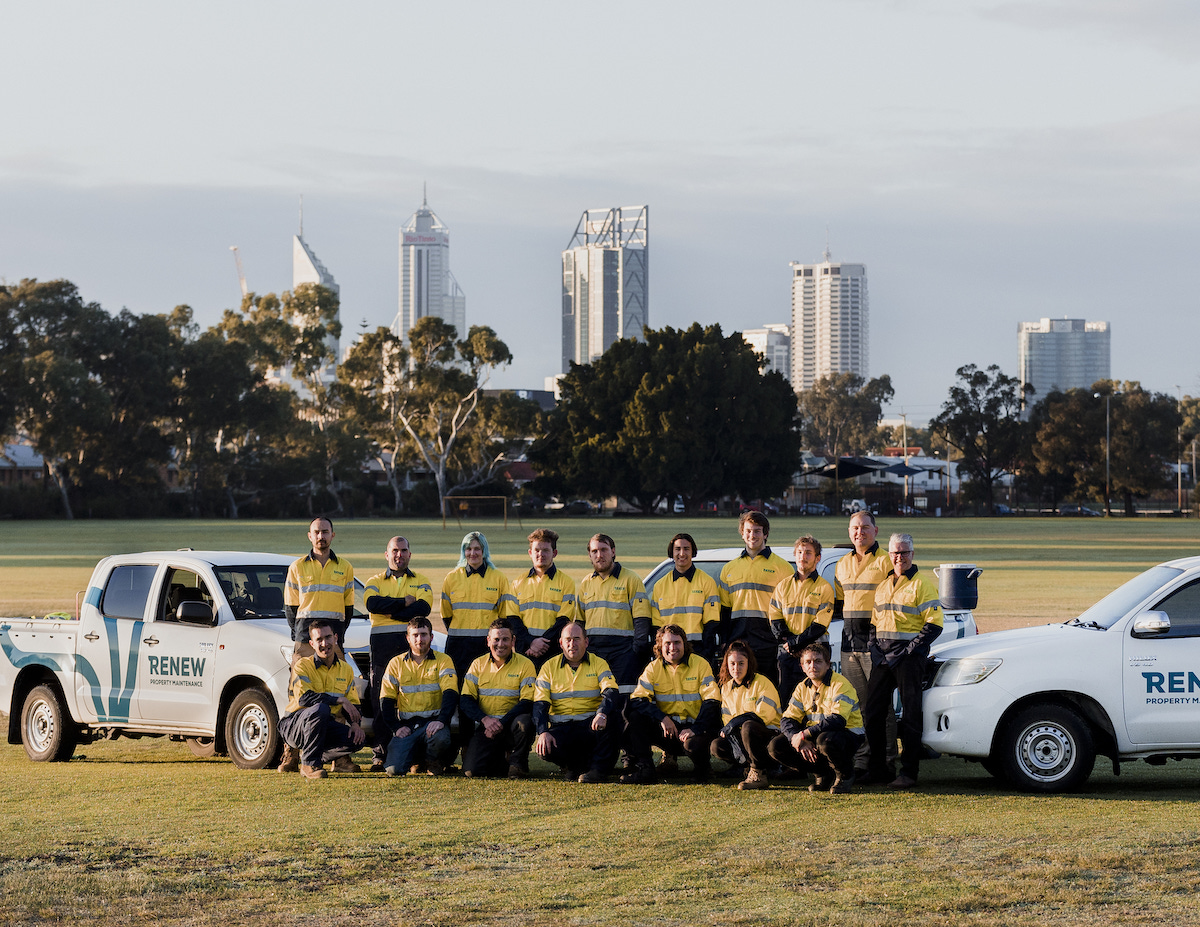Pat Ryan is CEO of the youth charity, Dismantle. They run the social enterprise Renew, which is creating employment opportunities for at-risk youth that want a decent job.
What does your business do, and who are your customers?
ReNew Property Maintenance is a commercial property maintenance and landscaping social enterprise, and a vehicle to create award-wage, entry-level employment opportunities for young people at-risk of long-term unemployment. The value proposition is three-fold; providing entry-level employment opportunities for disadvantaged young people who are most at-risk of long-term unemployment; providing corporate-Australia with a meaningful way procure both their existing service requirements and corporate responsibility commitments; and for the charity arm, a trade-based model to create a self-funded platform to create real change for at-risk young people.
For our clients, Charter Hall, CBRE, Spotless, Programmed and several Local Councils to name a few, ReNew delivers competitive, quality-centric landscaping and maintenance services that also offers a platform to invest in meaningful social outcomes for the communities they operate in.
What’s your mission?
ReNew is a social enterprise on a mission to connect at-risk young people with hands-on, entry level employment opportunities for organisations who want to create deeper value with their purchasing power.
What does it mean to you, to be a ‘social enterprise’?
ReNew is a social enterprise subsidiary of award-winning youth charity, Dismantle.
The central mission of all our initiatives is to dismantle youth disadvantage and build brighter futures. Through this lens, a social enterprise to us means a few things:
- A sustainable, self-funded business model that ensures longevity of impact
- The autonomy to define & create real opportunities for young people; award-wages, on-the-job learning, experience in an sector with transferable skills & wrap-around support along the way.
- The ability to interact with a broader scope of people/clients/industries & to create opportunities for govts and corporate Australia to invest in meaningful social impact.
Can you scale a mission? Are there challenges around growing your business, while also staying committed to your impact thesis?
It depends on your mission. Some orgs do a great job of scaling the awareness of a social or environmental problem. Others that rely on hands-on activities will obviously struggle to scale across regions without significant investment.
Growth challenges are there no matter what kind of business you run, and impact thesis has to change as an initiative matures. One of the key things are to remain mindful of the impact and ensure the stakeholders are authentically engaged with the need to go back to mission along the journey.
Don’t miss any of the stories, subscribe to the newsletter HERE
How have you seen investor sentiment change over the past 5 years, when it comes to recognising the value (or cost) of being mission-led?
We’ve seen the sentiment become more professional and better at calling out ‘green-washing’ initiatives. Also over time, initiatives that have fake outcomes or fake business models get weeded out. ESG is certainly a driving force behind an increased/deepened investor sentiment.
Was there a business (either local or globally) that influenced the development of your organisation?
Every one of our partners and customers has influenced our organisation. We develop alongside their needs and working relationship.
Other examples of our work exist all around the world. Some are tiny and some are multi-million dollar orgs. For our local area, the conditions of government policy, alternate services and needs of our beneficiaries has informed how we did our version of what others are doing.
What’s in store for your business in 2022?
We’re pursuing investment for growth and work on the foundations for scale.
At the same time we’ll always be mainly focussed on our core and delivering the best service we can to the young people that are in our programs.

